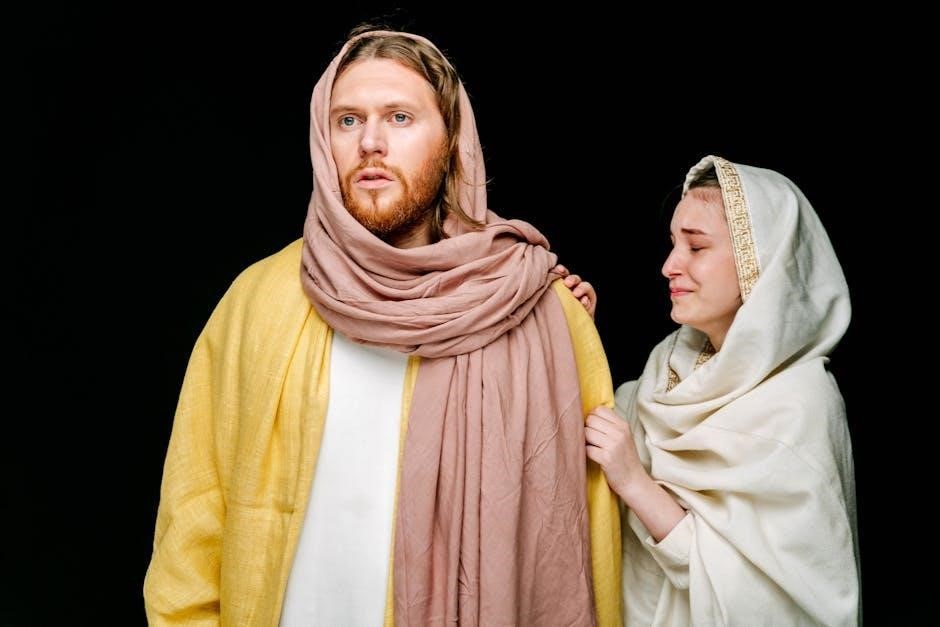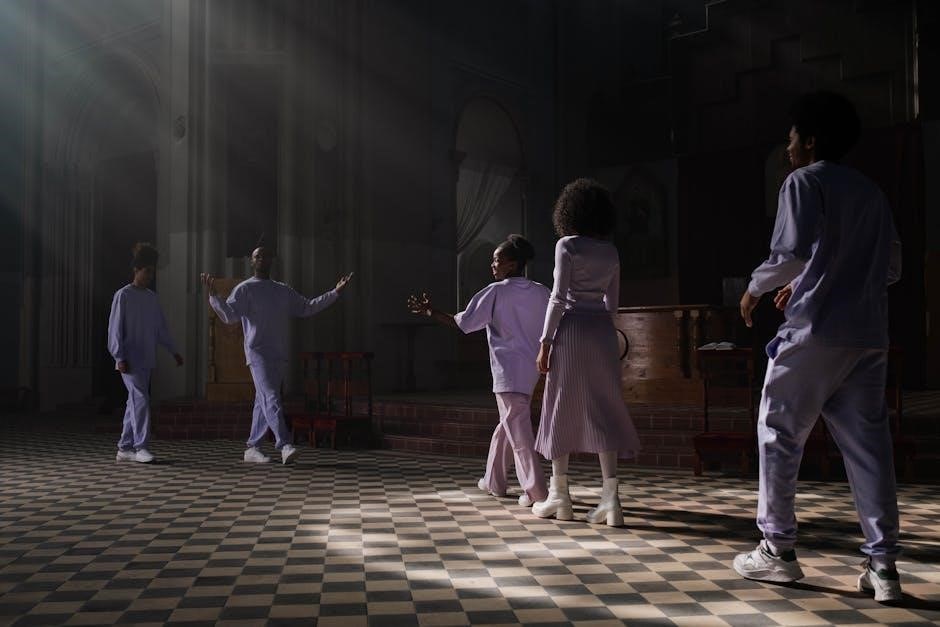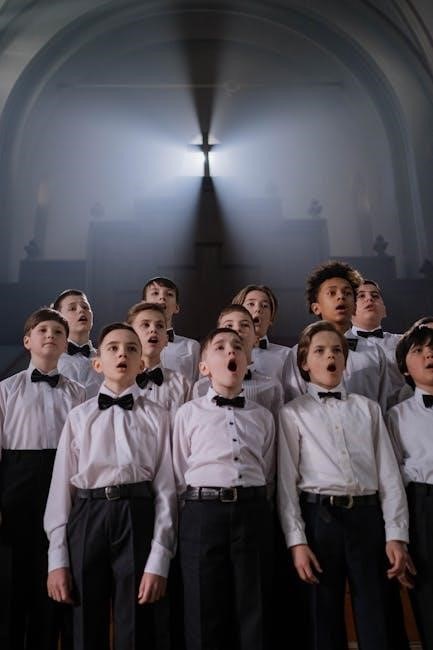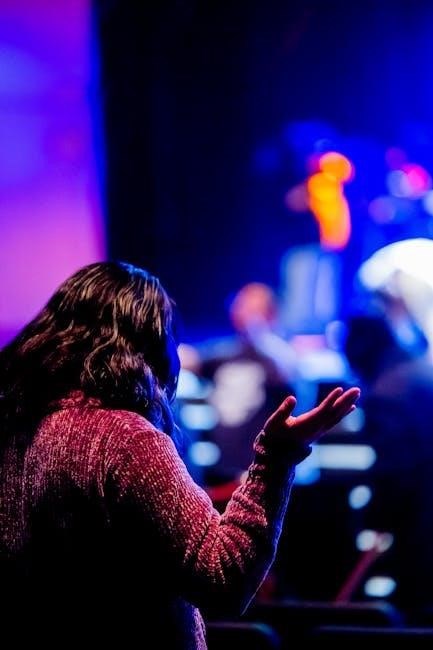James W. Fowler’s theory, outlined in his 1981 book Stages of Faith, explores how faith evolves through six distinct stages, influenced by Jean Piaget and Lawrence Kohlberg.

Overview of James W. Fowler and His Contributions to Faith Development
James W. Fowler, a renowned theologian and developmental psychologist, is best known for his groundbreaking work in faith development theory. His 1981 book, Stages of Faith: The Psychology of Human Development and the Quest for Meaning, introduced a six-stage model that describes how individuals progress in their spiritual journey. Fowler’s work was heavily influenced by Jean Piaget’s cognitive development theory and Lawrence Kohlberg’s stages of moral development. He argued that faith evolves through distinct phases, shaped by personal experiences, cultural influences, and psychological growth. Fowler’s contributions have been pivotal in understanding how individuals construct meaning and navigate spiritual and existential questions. His theory has been widely applied in religious education, counseling, and psychological studies, offering a framework to explore the dynamic and transformative nature of faith across different worldviews and life stages.

The Significance of the “Stages of Faith” Model in Understanding Spiritual Growth
The “Stages of Faith” model, developed by James W. Fowler, is a seminal framework for understanding spiritual growth and development. This theory provides a structured approach to identifying and analyzing the progression of faith, from infancy to maturity. Fowler’s model is significant because it recognizes that faith is not static but evolves through distinct stages, each characterized by unique cognitive, emotional, and social dimensions. By categorizing these stages, the model offers insights into how individuals construct meaning, navigate existential questions, and integrate their beliefs into daily life. This framework is invaluable for educators, psychologists, and religious leaders, as it enables them to support individuals in their spiritual journeys effectively. The model’s emphasis on the dynamic nature of faith makes it a powerful tool for fostering personal and communal spiritual growth.

The Six Stages of Faith Development
James Fowler’s theory outlines six stages of faith, progressing from intuitive-projective faith in childhood to universalizing faith in maturity, each stage building on the previous.

Stage 1: Intuitive-Projective Faith (Ages 3-7)
Stage 1, Intuitive-Projective Faith, marks the beginning of faith development in early childhood. Children at this stage (ages 3-7) experience faith through imagination, fantasy, and imitation. They absorb stories, symbols, and rituals from their environment, often interpreting them literally and emotionally. This stage is deeply influenced by caregivers and the surrounding culture, shaping their initial sense of trust and meaning. Fear and anxiety may also emerge as children confront the unknown, but this stage lays the groundwork for future spiritual growth. The intuitive and projective nature of this phase means children may personify God or spiritual concepts in ways that feel real to them. This foundational stage is crucial, as it sets the tone for how faith will unfold in later life.
Stage 2: Mythic-Literal Faith (Ages 7-12)
Stage 2, Mythic-Literal Faith, occurs during late childhood (ages 7-12). At this stage, children begin to think more logically and differentiate fantasy from reality. They interpret religious stories and symbols in a literal, concrete manner, often believing they are historically accurate. This stage is characterized by a growing sense of moral judgment, as children internalize right and wrong based on the stories and teachings they receive. Faith becomes closely tied to belonging to a community or tradition, with adherence to rules and rituals emphasizing loyalty and identity. While this stage provides a structured framework for understanding faith, it can also lead to rigid or literalistic thinking. The potential for fear or confusion arises when stories or beliefs seem contradictory. This phase lays the groundwork for more reflective and questioning stages in adolescence.
Stage 3: Synthetic-Conventional Faith (Ages 12-18)
Stage 3, Synthetic-Conventional Faith, typically emerges during adolescence (ages 12-18). At this point, individuals begin to construct a more coherent and systematic belief system, integrating ideas from various sources such as family, peers, and religious teachings. Faith becomes conventional, as young people seek to align their beliefs with societal norms and expectations. They value harmony and consensus, often avoiding questions that might lead to conflict or uncertainty. While this stage fosters a sense of belonging and moral clarity, it can also result in a somewhat rigid or superficial understanding of faith. Adolescents at this stage may struggle with complexities or contradictions within their belief system, as they rely heavily on external authorities rather than personal reflection. This phase sets the stage for the deeper self-examination that occurs in later stages of faith development.

Stage 4: Individuative-Reflective Faith (Young Adulthood)
Stage 4, Individuative-Reflective Faith, typically emerges during young adulthood. At this stage, individuals begin to critically examine the beliefs they have inherited from earlier stages. They question conventional norms and seek a more personalized, authentic faith. This period is marked by a shift from external authority to internal reflection, as individuals take ownership of their beliefs. They may experience an existential crisis, grappling with contradictions and complexities. The focus is on constructing a coherent, meaningful system of faith that aligns with their unique experiences and values. This stage emphasizes self-reflection and the integration of critical thinking into one’s spiritual journey. It is a time of exploration and transformation, where individuals move beyond mere acceptance of inherited beliefs to forge a faith that is deeply personal and intentionally chosen.
Stage 5: Conjunctive Faith (Mid-Life and Beyond)
Stage 5, Conjunctive Faith, occurs during mid-life and beyond, characterized by a deeper understanding and acceptance of paradoxes and mysteries. Individuals at this stage often experience a reintegration of earlier faith elements, blending personal experiences with a broader perspective. They embrace the complexity of life, recognizing that truth can be multifaceted. This stage fosters humility, compassion, and a renewed appreciation for the wisdom of different traditions. It is a time of healing past wounds and reconciling contradictions, leading to a more inclusive and universal view of faith. The focus shifts from individual reflection to a more communal and interconnected understanding of spirituality, culminating in a rich, holistic approach to life and faith.
Stage 6: Universalizing Faith (Maturity and Beyond)
Stage 6, Universalizing Faith, represents the highest and rarest stage in Fowler’s model, typically achieved by only a select few. At this stage, individuals transcend specific religious or ideological boundaries, embracing a universal and selfless perspective. Their faith becomes deeply intertwined with a commitment to justice, compassion, and the well-being of all humanity. This stage is characterized by unconditional love, a profound sense of unity with all existence, and a willingness to sacrifice for the greater good. Universalizing Faith often manifests in extraordinary acts of selflessness and wisdom, akin to the lives of saints or great spiritual leaders. It is the culmination of faith development, where one’s beliefs and actions are fully integrated into a holistic understanding of life, emphasizing love and justice for all.

Implications and Applications of Fowler’s Theory
Fowler’s stages of faith offer a versatile framework for understanding spiritual growth, applicable to diverse belief systems and secular worldviews, aiding in religious education, counseling, and personal development strategies.

How the Stages of Faith Apply to Various Spiritual and Secular Worldviews
Fowler’s stages of faith are not limited to religious contexts but can be applied to various spiritual and secular worldviews. This universality allows the model to be relevant across different cultural and philosophical backgrounds, helping individuals understand their personal journey toward meaning. Whether someone identifies as religious, spiritual, or secular, the stages provide a framework to explore how beliefs and values evolve. For instance, the intuitive-projective stage can manifest in a child’s imaginative play, while the universalizing stage might be seen in activists advocating for global justice. This adaptability makes Fowler’s theory a valuable tool for both religious and non-religious individuals seeking to deepen their understanding of faith and personal growth.
The Role of Fowler’s Model in Modern Religious and Psychological Studies

Fowler’s stages of faith model remains a cornerstone in modern religious and psychological studies, offering a comprehensive framework for understanding spiritual development. It bridges psychology and theology, providing insights into how individuals construct meaning. Researchers use this model to explore faith’s role in personal growth, moral reasoning, and identity formation. It also informs pastoral care, helping clergy support congregants through life transitions. In psychology, it aids in understanding the interplay between belief systems and mental health. Despite critiques, Fowler’s work continues to inspire interdisciplinary dialogue, enriching both religious and psychological discourse with its nuanced perspective on the human quest for meaning.